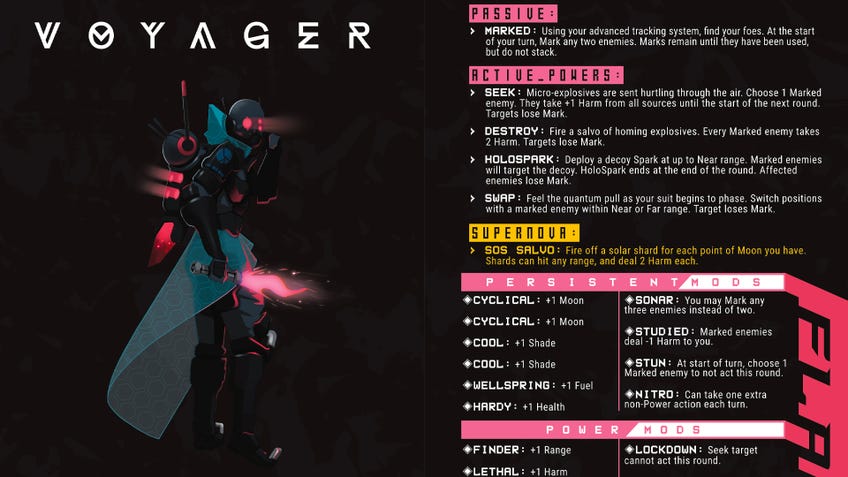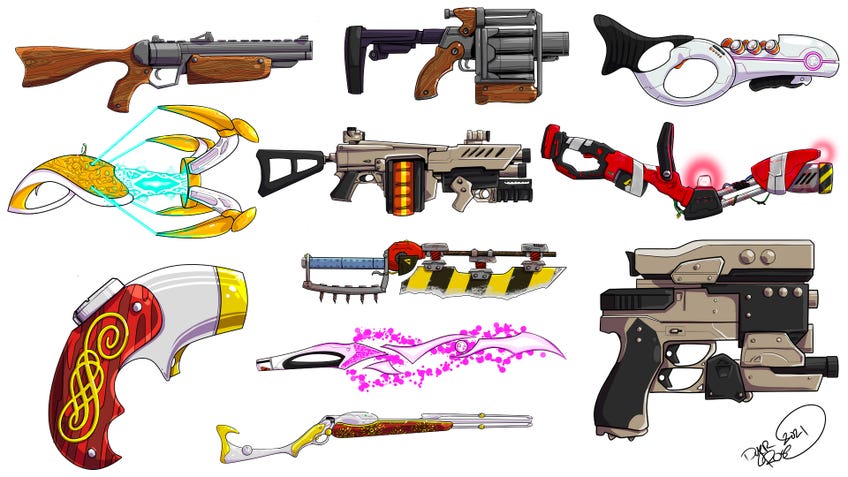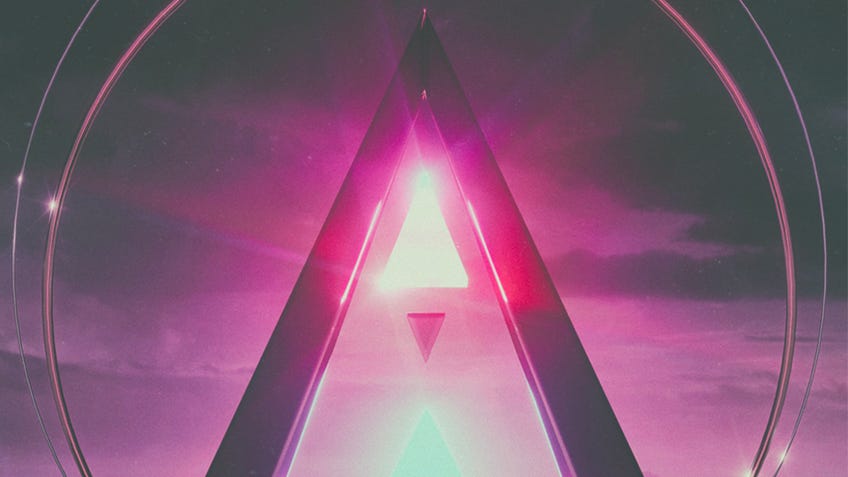By bringing the feel of video games to tabletop roleplaying, Lumen could become the next RPG phenomenon
Illuminating.
A game system that is meant to be played lives and dies on whether or not people play it. However, when a party grows tired of what they’re playing and goes seeking out a new experience in a new genre, what happens to that game?
Something like Apocalypse World survives, in many ways, thanks to other designers using its basis for future RPGs. Systems outgrow their original game, as has become the situation with systems like Powered by the Apocalypse and Belonging Outside Belonging. Even Fate was made as a toolkit to create more RPGs.
These RPG systems distinguish themselves by their ability to emulate genres and put a narrative-first focus on them. PbtA has examples like Masks: A New Generation (Teen Titans, Young Justice), Monster of the Week (Buffy, Supernatural) and recently the massive success of Avatar Legends. BoB has given birth to Henshin! (Power Rangers, Super Sentai) and Stand Up! (Persona 5). Fate has direct adaptations including The Dresden Files and Atomic Robo, but also Bulldogs! (Guardians of the Galaxy).
Over the last year, a new system has joined their ranks: Illuminated by Lumen.

Lumen began as the system behind Spencer Campbell’s Destiny-inspired RPG Light at the end of 2020. Campbell would continue working with the system, releasing additional supplements for Light and a spiritual sequel to Light, Nova. The system itself is action-first, with a focus on asking the player how they wish to approach a situation, which they will then describe, and then a stat will be selected based on that approach. The stat’s number will determine the number of d6s the player will roll, keeping the highest result and always hoping for a four to six. The game also has a resource that can be spent by a player for a variety of actions such as rerolling a roll, avoiding damage and, most importantly, activating a class’s powers.
The more important question was how they were trying to do something, not what they were trying to do.
In designing the system, Campbell says he “wanted players to be able to do anything, with the more important question being how they were trying to do something, not what they were trying to do".
"The players want to feel awesome, and these powers are just opportunities to say ‘Okay, I just do this awesome thing. no need to roll, it just happens’. That feels cool.”
The actual name behind the system would be released in spring 2021 with the Lumen System Reference Document, alongside a game jam to encourage game designers to make something out of the building blocks presented. In the few months since, there has been an explosion of games making use of Lumen’s structure.
What is it that’s attracting designers to the system, and players to those games? A whole new avenue for genre emulation is the answer. Lumen presents designers with not just a system that is action-first, but one built to emulate video games.
I wanted players to feel like they just kept doing cool stuff again and again. A power fantasy.
“When I made Light, I wanted to create a rules-lite system that was focused on creating exciting action that felt like a video game,” Campbell says. “I wanted players to feel like they just kept doing cool stuff again and again. A power fantasy. I took those rules and refined them to make the Lumen system SRD as a tool for people to make more games like that.”
And make more games, they have. Campbell has been directly supportive of the Lux Collective, a collection of designers releasing Lumen games on Itch.io, crowdfunding their games on the indie marketplace and offering promotion to one another. Between the Lux Collective and other designers taking hold of the system, in the last half-year Lumen has become hard to miss.

One core aspect of the system is that enemies drop loot when defeated, which Adira Slattery has taken advantage of in her Borderlands-inspired game GUNFUCKS, which prides itself on the fact every weapon is randomly-generated and will never look the same as another. “[Lumen] is tailor-made for creating games in the usually video game genre of looter-shooters,” she says.
Josh Hittie, creator of the The World Ends With You-inspired Vibe Check and the more experimental, Dishonored-inspired paKtbound, took different approaches with each game. While Vibe Check is a more traditional Lumen RPG dripping with style, paKtbound changes the resource spending system and introduces a unique skill tree.
“I think Lumen suited both games because it's really good at action,” Hittie says. “Especially with how powers work, and then the different layers you can build in like resource management, gear/item loops. It's very flexible.”
Adaptation and emulation of video games isn’t the only thing Lumen has going on. A prime example is Clean-Up Crew by WuDeRPG's Ralf Mayenberger, an original fast-paced action game about monster hunting that serves as the flipside to their more tranquil, non-Lumen Mariann: Soul Detective. “I wanted to create for the Lumen SRD because it captures that video game feel,” he says.
“I designed Lumen to simulate video games, but there are lots of great games out there that go beyond that expectation, which is wonderful,” Campbell says about the system’s recent popularity. He’s set up a collection on Itch.io to keep track of all Lumen games currently published to the site.
I designed Lumen to simulate video games, but there are lots of great games out there that go beyond that expectation, which is wonderful.
There you’ll find games like Apocalypse Frame capturing the fun of Armored Core, Villainous Fucks letting you live out your dreams of supervillainy, Pioneers fighting for a life among the stars, Aegis giving us the greatest parts of Anthem we never got, Chosen Ones bringing the glorious post-apocalyptic fantasy of Dark Souls to the table, Crystalline presenting Final Fantasy at its most deliciously grandiose, Ace Attorneys letting you do your best Phoenix Wright impression and so much more.
Though, for my money, sooner rather than later Lumen games won’t be so easily tracked on a single Itch.io page.


